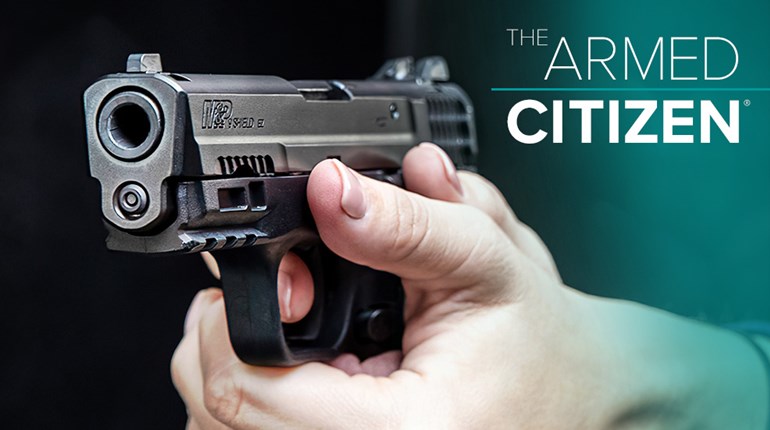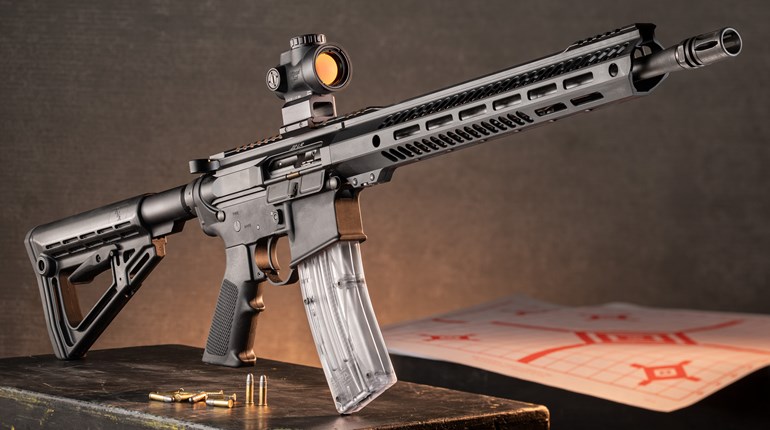
Last week we began a three-part look at how the Carry Life intersects with the ideals of sanctuary and security for churches in the United States. It wasn’t long before we frankly were astonished by the scope of the need: While estimates vary, a reasoned average yields about 300,000 congregations around the nation. Small wonder that Chuck Chadwick and the National Organization of Church Security and Safety Management are busy, busy, busy.
If we accept at face value the irritatingly common assertion that this work must be left to professionals (i.e., law enforcement), we very shortly encounter a problem: Not much other police work will get done on that early Sunday shift as every single available officer nationwide would be doing church security. Even then, there’d only be one officer per, whether we’re considering a 20,000-member mega-church or a modest country parish. You can bump that coverage up, of course: Just strip the Saturday night shift, right? <<Cue chirping crickets>> “In our litigious society, we have to employ a full range of responses, and only escalate when there is no other option.” — Tim Jager
We think that’d be a dumb idea, too. But bringing it up has one advantage: It points the professionals-are-the-only-answer assertion out as the impractical nonsense it is. Even if it weren’t a staffing issue for local departments (for instance, if off-duty officers were paid by churches to provide facility and pastoral security), you immediately get to problem number two—a high percentage of churches simply couldn’t afford it.
That’s where guys like Tim Jager (name changed to protect his anonymity) come in.
As a new deacon in an established, middle-sized church, one of the first things Jager encountered was a “very capable, full-time facilities manager who was also over-tasked. He was asking for help with security.”
“We’d had no history of problems, but could also count a few close calls; things that left us with that ‘whew’ feeling. I thought about it, prayed about it, and decided I couldn’t walk away,” Jager told us. “Initially, we encountered some resistance to a more formal approach. We discovered an important gap between perceptions and reality: It’s very different for there to truly be no trouble, and for there to be trouble that the congregation just doesn’t see.”
It seemed likely to us that this area of service was a reflection of Jager’s background, but he chuckled (politely) at this suggestion: “Oh, no,” he said. “I grew up in west Texas, worked in broadcasting for a while, and then spent 37 years in medical sales. I’m also a private pilot … and maybe that’s a loose connection, if there is one. I’m a detail guy—details that lives depend on, sometimes. I ‘what-if’ everything.”
It wasn’t long before those “what-ifs” bore worthwhile, if somewhat unexpected, fruit. It was easy to think just in terms of Sunday services and pastoral protection. But as a church that takes biblical values seriously—believing it is actually obligated to care and service—Jager and his growing team found risks that spanned the entire week. Jager said that because the church is open practically all the time, “It exposed us to a sort of predation by people who don’t share those values, so we needed strategies to monitor and address those risks.”
Jager said many people would likely be surprised at the bulk of his team’s emphasis. “Most of our service is actually along medical lines, but not by much: We have traditional security issues to protect both our facilities and congregation,” he said. It’s hard to imagine a more honorable way for a volunteer organization to take on such a complex, high-stakes challenge.
This is a happy coincidence for Jager, as four on his team have emergency medical training and experience.
“It’s no surprise in this town (Colorado Springs) to also have volunteers with military backgrounds, though the main benefit there isn’t what you might expect. What’s most useful is that they understand the need for a chain of command, and the taking and giving of orders,” he explained.
Jager’s team is nearing the end of its second year, and “things are going well,” he said.
“We blend in and try to be helpful, but sometimes get strange answers to the questions we ask during ‘DLR’ encounters—a ‘doesn’t look right,’” he said. “Then you have to be ready for whatever comes. This means we train constantly in de-escalation (Verbal Judo), but also hand-to-hand and weapons. In our litigious society, we have to employ a full range of responses, and only escalate when there is no other option.”
Jager’s security team had to face some initial challenges when it came to firearms and firearm training.
“Everyone has a concealed-carry permit, but that didn’t guarantee competence or consistency of the sort we believe we must have,” Jager said. “I’m the only one of the team without a military background (which is unusual), yet different eras of training and different vintages of issue sidearms means we have a lot of variation anyway. Plus, those skills take constant practice to maintain, so some of our folks are a lot farther down the road than others, despite the intensity of whatever their original military training was.”
Here, the team follows another NOCSSM recommendation: They now train to the FBI qualification standard (here or here) using the QIT-99 target. This 60-round course of fire demands speed and precision, and an 80-percent score to pass. Distances range from rapid presentation/shot strings at three yards, to 25-yard shots over and around a barrier.
“It isn’t as easy as it looks,” said Jager with a rueful smile. “Once our guys and lady initially qualify, they have to re-up, so to speak, once a year.”
In terms of professional development, the team never stops working. Team members have attended several NOCSSM conferences, and they maintain close relationships with local law enforcement (city and county), as well as their local FBI representatives. “Our professional partners make it pretty clear we can’t pick and choose the threats we prepare for.” — Tim Jager
“Our professional partners make it pretty clear we can’t pick and choose the threats we prepare for,” Jager said. “So far, we’ve been up to the task: Our only ‘weapons’ incident to date concerned a very large knife, but we were able to de-escalate that. Mostly it was poor judgment on somebody’s part, and, in the end, no big deal.”
Jager said it’s important that people understand that there’s a lot of animosity toward Christians these days, and from many quarters.
“Radical Islam has their sights set on Christian places of worship, a fact discreetly confirmed from very high levels,” he said. “Grand targets may be more to their liking, but even our middle-sized church would no doubt suit them fine. If they believed they could hurt and terrorize a lot of people, we’d be a possible target.
“We’re determined to keep serving our community in a truly Christian spirit, but also to make any disruption or threat to that as impractical as we possibly can.”
It’s hard to imagine a more honorable way for a volunteer organization to take on such a complex, high-stakes challenge. More incomprehensible, however, are those who keep insisting that “regular” folks aren’t—apparently ever—up to the task. By way of proof, we’d offer the near-total absence of their “Wild West” prognostications. This same anti-carry crowd, you’ll note, will shortly be entering its fourth decade of hysterical apprehension and statistical cherry-picking. It seems unlikely they’ll desist any time soon.
Meanwhile, we think it’s people like Tim Jager and his team who will finally put the lie to their shrill insistence that compelled defenselessness is the answer to any security question—even a very stupid one.
We hope they’ll Carry on. Go to Part III.

































